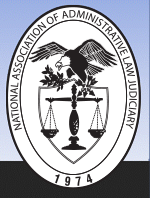Abstract
The first two roles of the U.S. Attorney General from its inception were to represent the interests of the United States before the U.S. Supreme Court and to advise the President on matters of the law. Despite the Attorney General delegating both roles, the former to the Solicitor General and the latter to the Office of Legal Counsel (OLC), the Attorney General and the Department of Justice are by statute and tradition looked upon to be the protectors of the rule of law within the Executive Branch. It is to the Attorney General, and by delegation to the OLC, to say to the strong seas of presidential power, this far and no farther will you come and here your proud waves must stop! The role of the OLC to provide dispositive opinions on the meaning of the law and to protect the rule of law requires that the OLC provide a specific type of advice that separates it from other types of legal advice from other quarters within the Executive Branch. After September 11th, the Bush Administration's OLC abandoned the Neutral Expositor of the best view of the law model and advanced a Private Lawyer model to advising the President. This article reviews the literature on the proper role of the OLC within the Executive Branch and places the torture memos within a broader context of the OLC's failure to maintain its proper role of a quasi-judicial advisor on the meaning of law.
Recommended Citation
Arthur H. Garrison,
The Role of the OLC in Providing Legal Advice to the Commander-In-Chief After September 11th: The Choices Made by the Bush Administration Office of Legal Counsel,
32 J. Nat’l Ass’n Admin. L. Judiciary
Iss. 2
(2012)
Available at:
https://digitalcommons.pepperdine.edu/naalj/vol32/iss2/7
Included in
Administrative Law Commons, Military, War, and Peace Commons, President/Executive Department Commons

